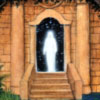The Spiritual Pathway
 by Dr. H. Spencer Lewis
by Dr. H. Spencer Lewis
Man is not discouraged nor disheartened in his quest for perfection by learning from experience that there are certain immutable laws universally established. Nor is he checked, in his determination to attain the heights of his ambition, by discovering that these immutable laws are impersonal and impartial. That these laws affect all of God’s children, and even every specie of living things, regardless of parental heritage, social standing, financial power, or Divine attunements, makes man see in and through them a principle of real justice.
The mystic claims that it is the continued demonstration of the immutable laws of nature which prove the existence of an Infinite Mind and Omnipotent Power, inspired by Love, Mercy, and Justice.
Unquestionably it is the evidence of the workings of these immutable laws that has maintained and sustained the faith of millions of men, in all ages, in the existence of some fair, just, and Infinite Intelligence ruling the universe. It has been this faith – aye, even conviction – that has saved the world from self-damnation and self-destruction; and it is this same conviction, growing more and more convincing through test and demonstration in science and every phase of common experience, that is responsible for the world-wide challenge of the truth of certain theological doctrines.
Man is truly becoming more and more religious in his thinking and living, and less theological. This is detrimental to some of the churches, but joyous for the Kingdom of God.
What are the fundamental immutable laws? First, that matter and energy are indestructible. Fire, decay, the will of man, the decree of God, may change, modify, or redirect the manifestation and nature of matter, but nothing can destroy its essential existence. Energy – the fundamental, universal essence of all power – may be directed and redirected in its course of action and demonstration, but it cannot be destroyed any more than it can be created. It has always existed and always will exist.
Man has come to understand the principle of immutability so well that he realizes that even the Master who originally conceived and decreed these immutable laws and set them into action with the “Word” (Logos) cannot now suspend, modify, or abrogate them. One incident of suspension, one demonstration of modification, would rob those laws of their universal justice. But neither history nor tradition record a single, authentic instance of the change of even the least important laws of nature.
What a marvelous conception in the beginning! What wonderful system, order, and law of equity! How our hopes rise and our fears fade away in the knowledge of sublime justice for all – every created and living thing. Truly, God was just and fair – in the beginning! Why should we doubt that God is still just?
Another immutable law is that we shall reap as we sow; the tendency on the part of every living cell to reproduce its own nature plus some degree of progression in its evolution. Against varying odds, willful interference on the part of man, and the influence of environment and unrelated forces of nature, the tendency of every living thing is to be true to type, even reverting to type when forced for a while to accept unwarranted modifications.
And, as a companion principle, we have what is generally known as the Law of Compensation, or “Karma,” as the mystics of many ages have called it.
The work of the late Luther Burbank was possible only because of nature’s immutable laws. By continually blending the elements of nature in accordance with the laws of synthesis, man has reaped a harvest of testimonies to the law. “If but once man in any part of the world should reap an orange from planted watermelon seeds, our faith in the whole scheme of life would be shattered!” said an eminent clergyman in England some forty years ago.
And if man should ever discover a single instance when the Law of Compensation or automatic adjustment did not operate in nature’s normal processes he would be justified in losing all faith in the Infinite wisdom of the Universal Mind.
An ancient philosopher, who was truly a Mystic, expressed the greatest principle of creation by saying that all things “are becoming.” Each hour of the day every material thing is becoming something else. It is the law of change, of motion, of life.
In the whole universe there is nothing today that is new in existence. Nothing has been created since the beginning when the “Word” established all created things; and, as we have said, nothing has been destroyed or ever will be destroyed.
All is unceasing, progressive change. This is the true law of evolution. The Mystic knows that man as a species has been and is evolving – not from a lower specie, but from a lesser to a greater degree of perfection. In the beginning was the Word and the Word was made flesh; and man as a specie was conceived and created simultaneously with all living creatures resembling him in some characteristics. But primitive man was as far advanced beyond the ape as modern man is advanced beyond the primitive progenitors of his type. He has evolved more rapidly than all other species of the animal kingdom because of endowments not possessed by other creatures.
All that which seems like “creating” is “recreating” – evolution, change. All that which seems destructive is but a phase in the process of constructive change. It is also evolution. Therefore, all that which is loosely called “creation” and “annihilation” is really transformation. That which seems new is but old matter, old thought, old spirit, old life, old hate, old evil, old errors, in new forms, new births of manifestation.
There are no contradictions in nature’s laws. Harmony is the element that binds them all into one Law – the Law of Evolution.
And, since there is no destruction of matter, energy, force, or principle, and no creation of this from what has not always existed “from the beginning,” all is eternal, immortal. Hence even the body of man in its elements, the spirit of life in its essence, the soul of man in its consciousness, are eternal and immortal.
And, there must be a law of evolution – change – new form – for the mind, character, personality, and Soul of man, as there is for the physical body of man.
Coincident with the gradual, progressive, evolution of man’s physical body in the ages of the past, has been the progressive evolution of the Soul of man.
The Soul in man – or call it mind, personality, or character – is the flower of God’s creation, the acme of nature’s products. It is inconceivable that nature should give immortality, and the accompanying opportunity to evolve, to the least speck of unconscious dust and deny it to the Soul of man.
We have intimated that the Soul in man is associated with personality, and that it has a conscious mind.
There is hardly any basis for argument in the statement that man is a dual being. Without the least consideration of any of the ancient or modem philosophies we can say in simple words that man, as a sentient entity, is a physical being through which expresses a personality, individuality, or distinct character. Essentially man is partly physical, and partly nonphysical; partly material and partly immaterial.
In this duality we sense a unity of different beings. That we are warranted in looking upon the personality or Soul of man as a spiritual being within the physical body, is indicated by the many common experiences of life quite independent of the principles expounded by psychology.
The experiences commonly designated as dreams reveal at least that man may be conscious of his existence and conscious of the world, without any functioning on the part of his waking consciousness. Whatever way we analyze dreams and conclude that they are the result of restlessness on the part of the brain or mind, the fact remains that the consciousness of the self during dreams is not the same as the self-consciousness during our normal waking conditions, in either degree or nature.
On the other hand, there are those occasions when this consciousness of self is asleep or dormant while the physical body is active and more than normally functioning; as, for instance, when chloroform or ether is used to dull the consciousness while the body is kept active through handling, abuse, and trial.
And, there is that very large class of frequent phenomena typified by the experience in which the consciousness of one in profound meditation seems to leave the physical body and as a sentient being goes out into space and revels in environments far removed from the locality of the physical body. At such times there is always a distinct sense of the separateness of the material and immaterial selves.
What is this inner self? Theology answers and says “the Soul.” Philosophy answers and says it is “consciousness of self.” The mystic – ever more guarded and precise than the theologian or philosopher – says: “It is the personality or Ego!”
Personality or Ego is the consciousness of the Spiritual Body – the Soul. It is that part of dual man that has been progressively evolving along with the evolution of the physical body. Just as the physical body has gradually acquired a more upright position, a more tranquil expression and a more refined form, so the personality – or consciousness of the Soul – has evolved a more universal knowledge, a more intimate acquaintance with itself and a more idealistic realization of its purpose in life.
This development of the consciousness of Personality in man is conveniently called Personal Evolution. The purpose of such evolution is to build character.
Every ethical and moral system of the past and present has had for its aim the building or perfecting of character. Even the primary stages of elementary education contribute greatly – for good or bad – in the molding of character. The Greeks adopted a system, now being revived, of character molding before birth, through the prenatal influences of the mother.
Unquestionably education has the most formidable influence upon character, while religion, ethics, and morals – as codes and creeds – contribute a refining element.
It is the desire of every progressive thinking being to develop the character to a degree of nobility and perfection where it is not only a personal asset – assuring very definite dividends – but an asset to the family, the city, and the nation.
We are told that Character is Salvation. Through the development of character man discovers himself and rounds out his dormant abilities while rounding off the rough comers of his nature. Truly, in this sense, the evolution of character is the approach to salvation from failure, sin and ignominy.
Character is Fate! Certainly, as we build our character in the now we decree our fate in the future. The forcefulness of the truth of this statement needs no amplification.
Every experience in life, every incident consciously realized, and many of which we are unconscious, form a part of our molding personality.
We are not only now what we think, but we will become that which results from our thinking.
We are reaping daily and hourly as we have sown. Each day we become, mentally, spiritually, and physically what we have made ourselves. Hence, we are forever working out our own salvation or damnation, independent of the subtle influences of heredity, and independent of any predestined course in life.
Man possesses the power to choose. Free-will is a fundamental factor of his highly developed – evolved – consciousness. But as he chooses, so must he abide. The responsibility rests with him. As he sows, so must he reap; as he obligates, so must he compensate; as he demands, so must he pay.
Man’s life is an endless battle between urge and decision. Cosmic, divine inspirations from the consciousness within lie with worldly, material, gross temptations, from without. Man is motivated by urge; he is free to decide and he becomes what he thereby decrees.
Such is the principle, the true law of Fatalism. The responsibility rests not in some blind law of chemical action and reaction, nor with a jealous, revengeful God.
Man may be blind to the consequences of his decisions, and may often be blind to the true nature of the urge which brings the need for decision. But the immutable laws provide one direct benefit as a result of every decision, every act. As man chooses – sows – so shall he reap and pay. That is the Law of Compensation.
According to this law, nature in every department of manifestation demands justice, equalization, and compensation.
It is so old in the understanding of man that most of his self-made laws, even among primitive tribes and races, are based upon observations of its working.
The manifestation of the Law of Compensation constitutes the great school of experience. Through this school man has come to learn of his powers and limitations, his weaknesses and strength, his advantage over all other living creatures.
From childhood unto old age, man learns that his evil acts are essentially a sin against his own career for which he must suffer or pay. He learns, too, that his noble deeds, unselfish acts and idealistic thoughts bring their balanced rewards.
Each experience with the Law of Compensation adds to the molding of his creed in life, his guide of conduct, his code of thinking. The memory of each experience – each lesson – remains as a stone in the structure of the character that he is building.
Personality – or character – is thereby evolving from childhood onward through every hour of conscious existence.
Thus the Soul in man, the immaterial part of his dual being, the consciousness of the self, is an evolving entity which the mystics call Personality or Ego. And because of its very nature, because of its association with the immaterial part of his being, personality is a spiritual, eternal, immortal entity.
The following statements are not presented as the component elements of a mere doctrine, but as the essential parts or related phases of a Law.
That Reincarnation, as a doctrine, affords a more satisfactory explanation of life and its trials, tribulations, and compensations, is apparent from the fact that it does not require a basic assumption other than that already adopted by all Christian and nearly all other forms of religious beliefs – the immortality of the Soul.
On the other hand it does not require the acceptance, upon faith, of any principle of fatalism, predestination, or retribution, operating through blind, material action or a revengeful, jealous God.
Neither does it shift the responsibility of our fate from earthly atom to heavenly deity, but leaves it resting surely upon the individual.
Let us see, therefore, what the fundamental assumption, referred to above, means.
The Soul, with its consciousness or personality, is immortal. This is the assumption and contention of all Christian doctrines and practically all other religions.
The mystic claims that if the Soul of man is something which is created anew and given existence for the first time when it enters a physical body, then it would cease to exist at that change of dual existence called death or transition – for if the Soul of man is immortal after death, it must have been immortal before birth.
The immutable laws of nature prove to us that it is inconsistent with the whole scheme of nature to suppose, assume, or believe that the Soul which enters each new body is an eternal, immortal entity created for the first time for each body, but living eternally thereafter.
The idea that the Soul is immortal only after it leaves the physical body is but half of the truth, if true at all. That which is immortal is and was forever immortal. Immortality is not an element or quality that can be called into sudden existence and added to a thing to serve for an indefinite period of time. If it is at all, it must have been eternally.
Furthermore, if the Soul in man is a gift, or an endowment from the Cosmic or the Infinite Consciousness, or God, it must be of the essence or nature of the Infinite God – eternally immortal. It must have existed “in the beginning” and will exist unto eternity. There can be no periodic creation of new parts or segments of the Divine Consciousness. Such a thought is so inconsistent with all other laws of nature that its belief is abhorrent to the real thinker.
Our only conclusion must be that the Soul of man, with its consciousness of Self, or Personality, is pre-existent, immortal, and eternal. It has always existed, but passes through the universal process of change.
The physical body of man, as we have seen, has attained its present degree of high perfection in appearance, form, nature, and functioning through progressive cycles of evolution. Certain races of men – having the advantage of environment and experience – have profited more through the cycles of physical evolution than others.
In all direct family lines of ascent we find that each generation of the blood, each cycle of the physical rebirth of the body, shows the effect of physical evolution, if no evil seeds have been sown to be reaped.
And coincident with these cycles of evolution – periods of rebirth along one line of ascent – the Soul also evolves in cycles of existence along one line of ascent.
Likewise the Soul of man in each existence, in each reincarnation in a physical body, shows the effect of mental and spiritual evolution, if no evil seeds have been sown to be reaped.
Excerpt from Mansions Of The Soul
Posted in Other Topics, Spiritualitywith comments disabled.





